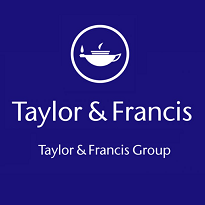| مشخصات مقاله | |
| انتشار | مقاله سال ۲۰۱۸ |
| تعداد صفحات مقاله انگلیسی | ۲۶ صفحه |
| هزینه | دانلود مقاله انگلیسی رایگان میباشد. |
| منتشر شده در | نشریه تیلور و فرانسیس |
| نوع مقاله | ISI |
| عنوان انگلیسی مقاله | The life of an accounting information systems research course |
| ترجمه عنوان مقاله | چرخه یک دوره تحقیقاتی در سیستم اطلاعات حسابداری |
| فرمت مقاله انگلیسی | |
| رشته های مرتبط | حسابداری |
| گرایش های مرتبط | حسابداری مالی |
| مجله | آموزش حسابداری – Accounting Education |
| دانشگاه | Aston Business School – Accounting – Aston University – UK |
| کلمات کلیدی | سیستم های اطلاعات حسابداری؛ توسعه دوره؛ مهارت های تحقیقاتی |
| کلمات کلیدی انگلیسی | Accounting information systems; course development; research skills |
| کد محصول | E7999 |
| وضعیت ترجمه مقاله | ترجمه آماده این مقاله موجود نمیباشد. میتوانید از طریق دکمه پایین سفارش دهید. |
| دانلود رایگان مقاله | دانلود رایگان مقاله انگلیسی |
| سفارش ترجمه این مقاله | سفارش ترجمه این مقاله |
| بخشی از متن مقاله: |
| Introduction
In this paper, we describe and evaluate the approach followed by faculty members of a Dutch university to strengthen the research interests of their accounting students. We focus in particular on the ‘making of’ and development of an Accounting Information Systems (AIS) course. The main research question we try to address is: how can an AIS-research course be designed that unifies the interests of three parties, namely, (1) program management, who is primarily concerned with meeting quality requirements imposed by accreditation committees; (2) faculty members, who wish to conduct (empirical) research, write research papers, and deliver quality teaching; and (3) students, who wish to write a Master of Science thesis in a limited amount of time, and continue their studies to qualify as a CPA.1 Accountants are researchers. The activities involved in the evaluation of annual reports may be a case in point (Carnegie & Napier, 2010). One of an accountant’s main tasks is to ‘look behind’ the financial figures he/she is presented with, and determine whether these accurately reflect the financial status of an organization, however difficult this may be to assess (Macintosh, 2009). In order to fulfill this task, it is common practice that accountants interview key stakeholders in an organization, review the quality of information stemming from software systems that support the organization’s daily operations, and check the legitimacy of a variety of financial and non-financial transactions. Many accountants do not seem to realize that correctly assessing an organization’s state of affairs, and thoroughly checking the reliability of the financial information it presents is not that straightforward. They often fail to see that having a research ‘mindset’ can help to achieve greater reliability. This may be due to a lack of exposure to research and/or limited attention in their education to the importance of research in their daily work (Carnegie & Napier, 2010; Gendron & Spira, 2009). The paper aims to provide insight into the AIS-course’s development process and (shifting) content and structure, so that it may serve as a template or exemplar for similar courses that interested readers may wish to develop,2 even if the structure of the curriculum, the kind of students involved (full-time or part-time), and/or the place of the course within a curriculum differs from what is presented here. We suggest that the timing and content of the course be adapted accordingly, as will be clarified in the final section of the paper. The paper covers the 2010–۲۰۱۵ period, when the authors were actively involved in the course in question. Evaluation scores of the AIS-research course during this period suggest that it adequately prepared students for the rest of their studies, as well as for particular issues and problems occurring in their daily practice. On top of this, the course seems to have increased faculty coherence: there is no longer a huge divide between ‘those who mainly teach’ and ‘those who mainly conduct research’ in the university department in question. Therefore, we believe that the course may be an interesting alternative to other developments in accounting curricula that try to develop students’ research skills (Hoque, 2002; Irving, 2011; Jalbert, 2008) and aim to increase faculty coherence. |
